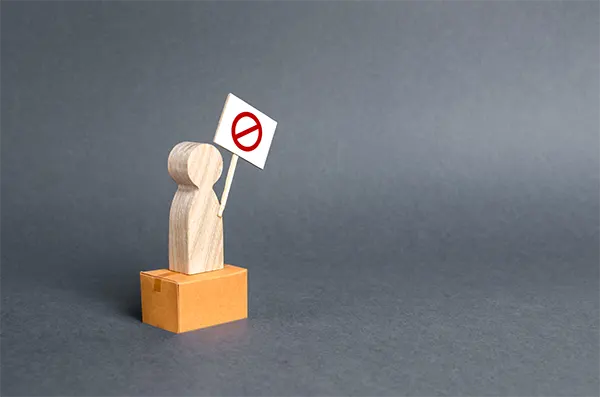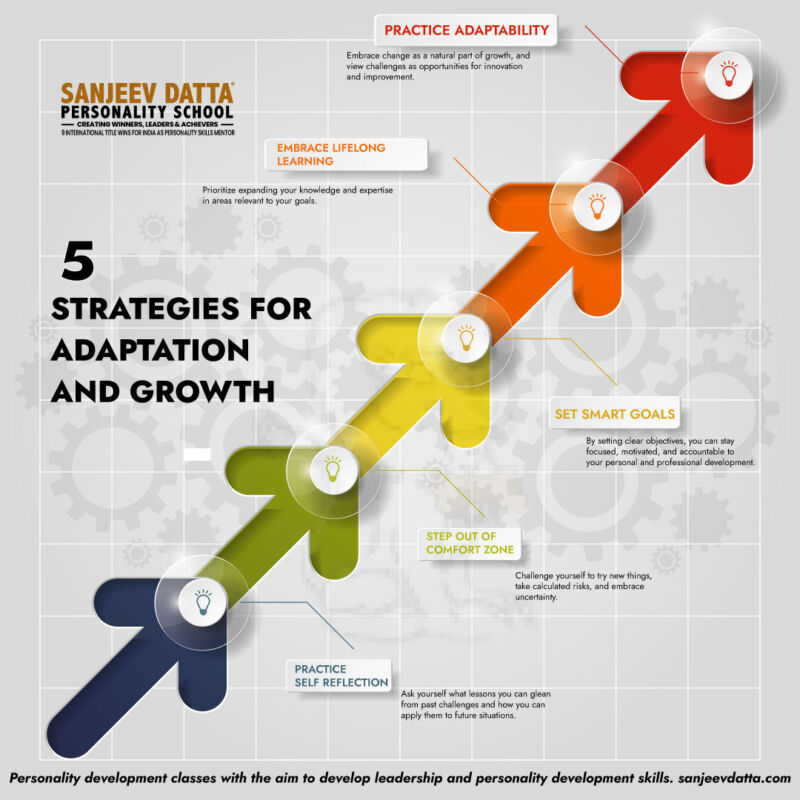Setting personal boundaries is one of the most important skills we can develop in our lives, yet it’s something many people struggle with. Whether it’s at work, in relationships, or with family and friends, establishing and maintaining clear boundaries is essential to protecting our emotional well-being and maintaining balanced, healthy relationships. If you’ve ever felt overwhelmed, taken advantage of, or drained from constantly giving more than you can handle, it’s time to learn how to set personal boundaries and take control of your life. In this guide, we will explore the concept of personal boundaries, why they matter, and practical strategies you can use to set boundaries in your everyday life. By the end, you will have a clear understanding of how to protect your time, energy, and emotional health while fostering respect and understanding in your relationships.
What Are Personal Boundaries?
Before diving into how to set personal boundaries, it’s important to understand what personal boundaries are and why they are essential. In simple terms, boundaries are the invisible lines that define what behaviors, actions, or attitudes are acceptable or unacceptable in your life. They create a space between you and others, helping you maintain your individuality, protect your well-being, and ensure that you are treated with respect.

Personal boundaries can be:
- Physical: These relate to your personal space and physical touch. For example, deciding who can hug you or sit close to you, and who cannot.
- Emotional: These boundaries protect your emotions and feelings, preventing others from manipulating or controlling you emotionally. They also help you avoid becoming overly responsible for other people’s feelings.
- Mental: Mental boundaries protect your thoughts, opinions, and beliefs. They involve being confident in your views while respecting others’ perspectives.
- Material: These boundaries relate to your belongings and finances. They help you decide who can borrow your things and how much financial help you are willing to give.
- Time: Time boundaries help protect how you spend your time. They allow you to prioritize your tasks, say no to commitments you cannot handle, and avoid burnout.
- Sexual: Sexual boundaries pertain to your level of comfort regarding physical intimacy and consent in sexual relationships.
Understanding the different types of boundaries is crucial because they affect every aspect of your life. By learning how to set personal boundaries, you protect your self-respect, prevent burnout, and build healthier relationships.
Visit: how to choose friends wisely
Why Setting Personal Boundaries Is Important?
Setting personal boundaries can be challenging, especially if you’re used to putting other people’s needs above your own. However, boundaries are not selfish; they are a necessary form of self-care. Here are some reasons why personal boundaries are essential for a healthy, balanced life:

- Protects Your Well-Being
Boundaries allow you to create a safe space where your emotional, mental, and physical health can thrive. Without clear boundaries, you may find yourself feeling overwhelmed, stressed, or taken advantage of, which can negatively impact your well-being.
- Builds Healthy Relationships
Healthy boundaries are the cornerstone of respectful, balanced relationships. They help you communicate your needs and expectations clearly, which prevents misunderstandings and fosters mutual respect. In relationships without boundaries, people may experience resentment, frustration, or dependency.
- Enhances Self-Respect
When you set boundaries, you are telling yourself and others that your needs matter. You show respect for yourself, which in turn encourages others to respect you as well. This helps build self-confidence and self-worth.
- Prevents Burnout
Without boundaries, it’s easy to overcommit, take on too much, and feel exhausted from constantly meeting others’ demands. Setting clear limits on your time and energy helps you avoid burnout and ensures that you have the resources to take care of yourself.
- Encourages Personal Growth
Setting and enforcing boundaries teaches you to assert yourself, communicate effectively, and prioritize your own needs. These are valuable life skills that contribute to your personal growth and overall well-being. Confidence isn’t just an attitude, it’s a lifestyle. Our expert-guided personality development classes will help you build self-assurance and leave a lasting impression.
Now that we understand the importance of boundaries, let’s dive into how to set personal boundaries and implement them in your life.
How to Set Personal Boundaries: Practical Steps

- Identify Your Needs and Limits
The first step in setting personal boundaries is to understand your own needs, desires, and limits. Ask yourself the following questions:
- What makes me feel uncomfortable or stressed?
- In what situations do I feel resentful or taken advantage of?
- What are my non-negotiables in terms of time, energy, and personal space?
By identifying your emotional, physical, and mental limits, you can gain clarity on where you need to set boundaries. For example, if you notice that constantly answering work emails after hours leaves you feeling drained, this is a clear sign that you need to establish a boundary around your work-life balance.
2. Be Clear and Direct
Once you have identified your boundaries, the next step is to communicate them clearly and directly. This can be difficult, especially if you fear confrontation or upsetting others. However, vague or indirect communication can lead to confusion and boundary violations. When setting a boundary, use assertive but respectful language, and be specific about what you need.
For example, if a friend often asks for favors that you’re not comfortable with, you could say: “I’m happy to help when I can, but I need to make sure I have time for my own responsibilities. I won’t be able to assist every time you ask.”
Visit: how to build mental strength
3. Start Small
If setting boundaries feels intimidating, start with small, manageable steps. Practice saying no to low-stakes requests or setting limits with people you feel comfortable with. This will help you build confidence in asserting yourself and gradually expand to more challenging situations.
For example, if you’re used to always saying “yes” to every invitation or request, practice saying “no” to something minor, like a social event you’re not interested in attending. Over time, this will make it easier to say no when it matters.
4. Use “I” Statements
When communicating boundaries, it’s important to focus on your feelings and needs rather than blaming or accusing others. Using “I” statements can help you express yourself without triggering defensiveness. This approach emphasizes personal responsibility and promotes open communication.
For example, instead of saying, “You always interrupt me,” you could say, “I feel disrespected when I’m interrupted. I need to finish my thoughts before we move on.”

5. Be Consistent
Consistency is key to maintaining boundaries. If you set a boundary but allow others to cross it without consequences, the boundary will lose its effectiveness. It’s important to stick to your boundaries, even when it feels uncomfortable or challenging.
For example, if you’ve set a boundary around not working late, but a colleague asks you to stay late “just this once,” it’s important to reinforce your boundary by saying no. Consistency will help others understand that your boundaries are serious and must be respected.
6. Practice Self-Care
Setting and enforcing boundaries can be emotionally draining, especially if you’re not used to asserting yourself. Practicing self-care is essential during this process. Make time for activities that recharge you, whether it’s spending time alone, engaging in hobbies, or practicing mindfulness.
Self-care also includes permitting yourself to step away from situations or people that drain your energy. It’s okay to prioritize your well-being and protect your boundaries.
7. Be Prepared for Pushback
Not everyone will be happy with the boundaries you set, especially if they’re used to you being overly accommodating. Some people may push back or try to guilt-trip you into bending your boundaries. It’s important to stand firm and remember that you have the right to protect your well-being.
You can handle pushback by calmly restating your boundary and explaining why it’s important to you. For example, “I understand that you’re disappointed, but I need to prioritize my own needs right now.”
8. Reassess Your Boundaries Regularly
Personal boundaries are not set in stone. As you grow and evolve, your boundaries may need to change as well. Regularly reassess your boundaries to ensure they still align with your values, needs, and circumstances. If a boundary no longer serves you, don’t be afraid to adjust it.
For example, as you advance in your career or personal life, you may need to set new boundaries around your time or energy. Being flexible and open to change is a healthy part of maintaining personal boundaries.
9. Seek Support
If you find it difficult to set or enforce boundaries, don’t hesitate to seek support. Whether it’s talking to a trusted friend, a therapist, or a mentor, having someone to guide you through the process can be incredibly helpful. A therapist can offer strategies for setting boundaries in difficult situations and help you build the confidence to assert yourself. Every great leader starts with self-awareness. Unlock your leadership potential by mastering key personality traits with our expert-run personality development training programs.
10. Understand That Boundaries Benefit Everyone
Finally, remember that setting boundaries is not just about protecting yourself—it also benefits others. Clear boundaries create healthier, more respectful relationships by preventing resentment, misunderstandings, and dependency. When you set boundaries, you allow others to understand your needs and limits, fostering mutual respect and trust.
Visit: how to build positive self esteem
Common Myths About Setting Personal Boundaries
As you embark on learning how to set personal boundaries, it’s essential to recognize and dispel some common myths that may hold you back:

Myth 1: Setting Boundaries is Selfish
Fact: Setting boundaries is an act of self-respect and self-care, not selfishness. You cannot be there for others if you’re constantly depleted.
Myth 2: Boundaries Hurt Relationships
Fact: Healthy boundaries improve relationships by fostering mutual respect and clear communication. They help avoid feelings of resentment and frustration.
Myth 3: Boundaries Mean Cutting People Off
Fact: Boundaries do not mean you cut people off or push them away. Instead, they help create a more balanced and respectful dynamic in your relationships.
Myth 4: People Will Dislike You if You Set Boundaries
Fact: While some people may initially resist your boundaries, those who genuinely care about you will respect them over time. Boundaries can lead to stronger, more authentic relationships.
Visit: why personal development
Conclusion:
Learning how to set personal boundaries is a powerful tool for protecting your well-being and fostering healthier, more fulfilling relationships. You can create boundaries that support your emotional, mental, and physical health by identifying your needs, communicating clearly, and staying consistent. Remember that setting boundaries is not a one-time event but an ongoing process that evolves as you grow.
Don’t be afraid to assert yourself and protect your time, energy, and values. In doing so, you’ll cultivate greater self-respect, reduce stress, and enhance the quality of your relationships. Ultimately, knowing how to set personal boundaries allows you to live a more balanced, fulfilling life where your needs are honored and respected.


